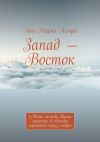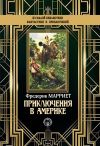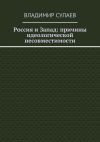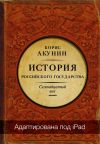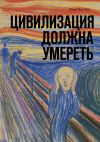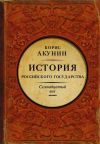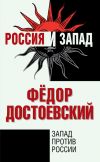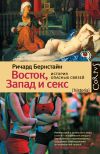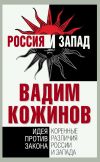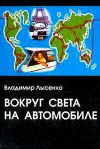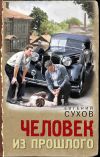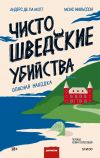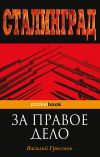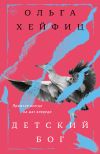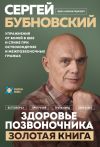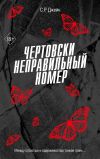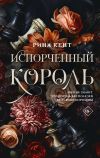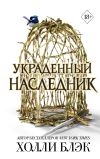Текст книги "Цивилизация. Чем Запад отличается от остального мира"
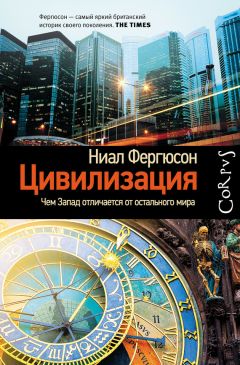
Автор книги: Ниал Фергюсон
Жанр: Документальная литература, Публицистика
сообщить о неприемлемом содержимом
Текущая страница: 25 (всего у книги 28 страниц)
Конечно, западная цивилизация не безупречна. На ее долю тоже приходятся исторические ошибки – от злоупотреблений империализма до банальности общества потребления. Ее чрезмерный материализм вызвал всевозможные сомнительные последствия, и не в последнюю очередь неудовлетворенность, которой Фрейд советовал избегать. И, конечно, западная цивилизация отбросила бережливый аскетизм, восхищавший Вебера.
И все же западный комплекс, кажется, пока лучший из доступных человечеству комплексов экономических, социальных и политических институтов. Именно они с наибольшей вероятностью могут стимулировать человеческий творческий потенциал, способный к решению проблем, с которыми столкнулся мир в XXI веке. За прошедшую половину тысячелетия ни одна другая цивилизация не выявила и не обучила столько гениев.
Вопрос в том, признаем ли мы еще превосходство западного комплекса. В конце концов, цивилизацию делают реальной для ее носителей не только роскошные постройки в столицах и даже не надежное функционирование институтов, которые занимают эти здания. Ядро цивилизации – это тексты, которые изучают школьники и студенты и которые приходят человеку на ум в дни испытаний. Китайская цивилизация была основана на конфуцианстве. Исламская цивилизация – культ покорности – основана на Коране. А каковы “священные писания” западной цивилизации, поддерживающие нашу веру в почти безграничные возможности свободного человека?[811]811
Я бы предложил следующие книги: Библию короля Якова, “Начала” Нью-
тона, “Два трактата о правлении” Локка, “Теорию нравственных чувств” и “О богатстве народов” Смита, “Революцию во Франции” Берка, “Происхождение видов” Дарвина, пьесы Шекспира, избранные речи Линкольна и Черчилля. Если бы пришлось выбрать один-единственный том в качестве своего Корана, я бы взял полное собрание сочинений Шекспира.
[Закрыть] И насколько хорошо мы знакомы с ними? Возможно, реальную угрозу нам несет не возвышение Китая, не ислам и не выбросы CO2, а утрата нами веры в цивилизацию предков.
Наша цивилизация – нечто большее, чем противоположность театральным игрищам (см. эпиграф). Черчилль указал на очень важный аспект, когда определил “центральный принцип [западной] цивилизации” как “подчинение господствующего класса древним обычаям народа и его воле, как это выражено в конституции”:
Разве нации не могут соединиться… и установить верховенство права для всеобщей пользы? Конечно, это высокая надежда, которой мы должны вдохновляться… Но не стоит думать, будто одно только… признание верных принципов…
будет иметь хоть какую-либо ценность, если оно не подкрепляется… гражданской добродетелью и высокой отвагой, а также инструментами и эффективными средствами [военной] силы и науки, которые в качестве крайнего средства должны стать защитой законности и разума. Цивилизация не сможет продолжать существование, свободы не останется, мир не будет сохранен, если большая доля человечества не объединится, чтобы защитить их и продемонстрировать, что у них есть полицейская власть, перед которой будут трепетать варварские и атавистические силы[812]812
Churchill Civilization, pp. 45f.
[Закрыть].
В 1938 году эти “варварские и атавистические силы” были прежде всего внешним врагом. И, как мы увидели, они в той же степени были плодами западной цивилизации, как и те ценности, которыми дорожил Черчилль. Сегодня, как и тогда, главную угрозу Западу несут не другие цивилизации, а наше собственное малодушие и питаемое им историческое невежество.
Библиография
Введение. Вопрос Расселаса
Acemoglu, Daron, Johnson, Simon, and James A. Robinson Reversal of Fortune: Geography and Institutions in the Making of the Modern World Income Distribution // Quarterly Journal of Economics, 117 (2002), pp. 1231–1294.
Bagby, Philip Culture and History: Prolegomena to the Comparative Study of Civilizations. Berkeley/Los Angeles, 1959.
Bayly, C. A. The Birth of the Modern World, 1780–1914. Blackwell, 2004.
Bockstette, Valerie, Chanda, Areendam, and Louis Putterman States and Markets: The Advantage of an Early Start // Journal of Economic Growth (2002), pp. 347–369.
Bozeman, Adda B. Politics and Culture in International History: From the Ancient Near East to the Opening of the Modern Age. New York, 1994 [1960].
Braudel, Fernand A History of Civilizations. New York, 1993.
Brownworth, Lars Lost to the West: The Forgotten Byzantine Empire that Rescued Western Civilization. New York, 2009.
Cahill, Thomas How the Irish Saved Civilization. New York, 1995.
Chandler, T. Four Thousand Years of Urban Growth: A Historical Census. Lewiston/Queenstown, 1987.
Chaudhary, Latika, Musacchio, Aldo, Nafziger, Steven, and Se Yan Big BRICs, Weak Foundations: The Beginning of Public Elementary Education in Brazil, Russia, India, and China, 1880–1930. Draft working paper (2010).
Clark, Gregory A Farewell to Alms: A Brief Economic History of the World. Princeton, 2007.
Clark, Kenneth Civilisation: A Personal View. London, 2005 [1969].
Coulborn, Rushton The Origin of Civilized Societies. Princeton, 1959.
Darwin, John After Tamerlane: The Rise and Fall of Global Empires. London, 2007.
Dawson, Christopher The Making of Europe: An Introduction to the History of European Unity. London, 1932.
Diamond, Jared Guns, Germs and Steel: A Short History of Everybody for the Last 13,000 Years. London, 1998.
Diamond, Jared How to Get Rich: A Talk // Edge, 56, June 7, 1999.
Eisenstadt, S. N. Comparative Civilizations and Multiple Modernities. Leiden, 2003.
Elias, Norbert The Civilizing Process, 2 vols. Oxford, 1969, 1982 [1939].
Elvin, Mark The Pattern of the Chinese Past. London, 1973.
Ferna´ndez-Armesto, Felipe Civilizations: Culture, Ambition and the Transformation of Nature. New York / London / Toronto/ Sydney/Singapore, 2001.
Ferna´ndez-Armesto, Felipe Millennium: A History of our Last Thousand Years. London, 1997.
Findlay, Ronald, and Kevin H. O’Rourke Power and Plenty: Trade, War, and the World Economy in the Second Millennium. Princeton, 2007.
Fogel, Robert W. The Escape from Hunger and Premature Death, 1700–2100: Europe, America, and the Third World. Cambridge, 2003.
Goody, Jack Capitalism and Modernity. Cambridge/Malden, MA, 2004.
Goody, Jack The Eurasian Miracle. Cambridge/Malden, MA, 2009.
Guyver, Robert England and the Battle for the Centre Ground: The History Working Group and the First History War (1988–1991) as an Archetype for Subsequent Wars / In: Taylor, Tony, and Robert Guyver (eds.) History Wars in the Classroom: Global Perspectives (forthcoming).
Hibbs, Douglas A., Jr., and Ola Olsson Geography, Biogeography, and Why Some Countries are Rich and Others are Poor // Proceedings of the National Academy of Sciences of the United States, 101, 10 (2004), 3715–3720.
Huntington, Samuel The Clash of Civilizations and the Remaking of World Order. New York/London/Toronto/Sydney, 1996.
Johnson, Samuel The History of Rasselas, Prince of Abissinia. Boston, 1811 [1759].
Jones, Eric The European Miracle: Environments, Economies and Geopolitics in the History of Europe and Asia. Cambridge, 2003.
Kagan, Robert Of Paradise and Power: America and Europe in the New World Order. New York, 2003.
Kennedy, Paul The Rise and Fall of the Great Powers: Economic Change and Military Conflict from 1500 to 2000. New York, 1989.
Landes, David S. The Wealth and Poverty of Nations: Why Some are So Rich and Some So Poor. New York, 1998.
Laue, Theodore H. von The World Revolution of Westernization // History Teacher, 20, 2 (1987), pp. 263–279.
MacGregor, Neil A History of the World in 100 Objects. London, 2010.
McNeill, William H. The Pursuit of Power: Technology, Armed Force and Society since AD 1000. Chicago, 1982.
McNeill, William H. The Rise of the West: A History of the Human Community. Chicago, 1991 [1963].
Maddison, Angus The World Economy: A Millennial Perspective. Paris, 2001.
Melko, Matthew The Nature of Civilizations. Boston, 1969.
Matthews, Derek The Strange Death of History Teaching (Fully Explained in Seven Easy-to-Follow Lessons). Unpublished pamphlet (January 2009).
Morris, Ian Why the West Rules – For Now: The Patterns of History, and What They Reveal About the Future. New York, 2010.
Mumford, Lewis The City in History. New York, 1961.
Murray, Charles A. Human Accomplishment: The Pursuit of Excellence in the Arts and Sciences, 800 B.C. to 1950. New York, 2003.
North, Douglass C. Understanding the Process of Economic Change. Princeton, 2005.
North, Douglass C., Wallis, John Joseph, and Barry R. Weingast Violence and Social Orders: A Conceptual Framework for Interpreting Recorded Human History. Cambridge, 2009.
Osborne, Roger Civilization: A New History of the Western World. New York, 2008.
Pomeranz, Kenneth The Great Divergence: China, Europe and the Making of the Modern World Economy. Princeton, 2000.
Putterman, L., and David N. Weil Post-1500 Population Flows and the Long Run Determinants of Economic Growth and Inequality. Working paper (September 2008).
Quigley, Carroll The Evolution of Civilizations (New York, 1961.
Rajan, Raghuram G., and Luigi Zingales The Persistence of Underdevelopment: Institutions, Human Capital, or Constituencies? // NBER working paper no. 12093 (February 2006).
Roberts, John The Triumph of the West. London, 1985.
Schuker, Stephen A. A Sea Change in the Atlantic Economy? How the West Pulled Ahead of the Rest and Why It May Cease to Do So / In: Hay, William Anthony, and Harvey Sicherman (eds.) Is There Still a West? The Future of the Atlantic Alliance. Columbia, MO, 2007, pp. 89–124.
Scruton, Roger The West and the Rest: Globalization and the Terrorist Threat. London/ New York, 2002.
Wallerstein, Immanuel The Modern World-System. New York, 1974, 1980, 1989.
Wong, R. Bin China Transformed: Historical Change and the Limits of European Experience. Ithaca/London, 2000.
Woods, Thomas E. Jr. How the Catholic Church Built Western Civilization. Washington, DC, 2001.
Глава 1. Конкуренция
Barme´, G. R. The Forbidden City. London, 2008.
Barrow, Sir John Some Account of the Public Life, and a Selection from the Unpublished Writings, of the Earl of Macartney, 2 vols. London, 1807.
Birch, W. The Historical Charters and Constitutional Documents of the City of London. Charleston, SC, 2009.
Bishop, K. China’s Imperial Way. Hong Kong, 1997.
Brook, Timothy The Confusions of Pleasure: Commerce and Culture in Ming China. Berkeley, 1999.
Burrage, M. C., and D. Corry At Sixes and Sevens: Occupational Status in the City of London from the Fourteenth to the Seventeenth Century // American Sociological Review, 46, 1 (1981), pp. 375–393.
Castor, Helen Blood and Roses: The Paston Family and the War of the Roses. London, 2004.
Catto, Jeremy Written English: The Making of the Language, 1370–1400 // Past & Present, 179 (2003), pp. 24–59.
Chirot, Daniel The Rise of the West // American Sociological Review, 50, 2 (1985), pp. 181–195.
Clark, Gregory A Farewell to Alms: A Brief Economic History of the World. Princeton, 2007.
Cipolla, Carlo M. Guns and Sails in the Early Phase of European Expansion, 1400–1700. London, 1965.
Cotterell, A. The Imperial Capitals of China: An Inside View of the Celestial Empire. London, 2008.
Dardess, J. W. A Ming Landscape: Settlement, Land Use, Labor and Estheticism in T’ai-Ho County, Kiangsi // Harvard Journal of Asiatic Studies, 49, 2 (1989), pp. 295–364.
Dreyer, E. L. Zheng-He: China and the Oceans in the Early Ming Dynasty, 1405–1433. London, 2006.
Duyvendak, J. J. L. The True Dates of the Chinese Maritime Expeditions in the Early Fifteenth Century // T’oung Pao, 34, 5, Second Series (1939), pp. 378–379.
Ebrey, Patricia Buckley The Cambridge Illustrated History of China. Cambridge, 1996.
Ferna´ndez-Armesto, Felipe Millennium: A History of our Last Thousand Years. London, 1997.
Ferna´ndez-Armesto, Felipe Pathfinders: A Global History of Exploration. Oxford, 2007.
Finlay, Robert Portuguese and Chinese Maritime Imperialism: Camoes’s Lusiads and Luo Maodeng’s Voyage of the San Bao Eunuch // Comparative Studies in Society and History, 34, 2 (1992), pp. 232–241.
Flynn, Dennis O., and Arturo Giraldez Arbitrage, China, and World Trade in the Early Modern Period // Journal of the Economic and Social History of the Orient, 38, 4 (1995), 429–448.
Flynn, Dennis O., and Arturo Giraldez Born with a “Silver Spoon”: The Origin of World Trade in 1571 // Journal of World History, 6, 2 (1995), 201–221.
Fogel, Robert W. The Escape from Hunger and Premature Death, 1700–2100: Europe, America, and the Third World. Cambridge, 2003.
Goody, Jack Capitalism and Modernity. Cambridge/Malden, MA, 2004.
Guan Hanhui, and Li Daokui The GDP and Economic Structure of the Ming Dynasty // China Economic Quarterly (forthcoming).
Higman, B. W. The Sugar Revolution // Economic History Review, 53, 2 (2000), pp. 213–236.
Hobson, John The Eastern Origins of Western Civilisation. Cambridge, 2004.
Hoffman, Philip T. Prices, the Military Revolution, and Western Europe’s Comparative Advantage in Violence // Economic History Review (forthcoming).
Huang, Ray 1587: A Year of No Significance: The Ming Dynasty in Decline. New Haven, 1977.
Inwood, S. A History of London. London, 1998.
Jones, Eric The European Miracle: Environments, Economies and Geopolitics in the History of Europe and Asia. Cambridge, 2003.
Keay, John China: A History. London, 2009.
Landes, David S. Revolution in Time: Clocks and the Making of the
Modern World, 2nd edn. New York, 2000.
Landes, David S. The Wealth and Poverty of Nations: Why Some are So Rich and Some So Poor. New York, 1998.
Levathes, Louise When China Ruled the Seas: The Treasure Fleet of the Dragon Throne, 1405–1433. Oxford, 1994.
Menzies, Gavin 1421: The Year China Discovered the World (London, 2002.
Mintz, Sidney W. Sweetness and Power: The Place of Sugar in Modern History. London, 1985.
Mokyr, Joel Lever of Riches. Oxford, 1990.
Montesquieu, Charles de Secondat, baron de The Spirit of the Laws. London, 1914 [1748].
Needham, Joseph (ed.) Science and Civilization in China, 7 vols. Cambridge, 1954–2008.
Newman, R. Opium Smoking in Late Imperial China: A Reconsideration // Modern Asian Studies, 29 (1995), pp. 765–794.
Pelzer, John and Linda The Coffee Houses of Augustan London // History Today, 32 (1982), pp. 40–44.
Pinker, Steven The Better Angels of our Nature: The Decline of Violence and its Psychological Roots (forthcoming).
Ray, Haraprasad An Analysis of the Chinese Maritime Voyages into the Indian Ocean during Early Ming Dynasty, and their Raison d’Etre // China Report, 23, 1 (1987), pp. 65–87.
Smith, Adam An Inquiry into the Nature and Causes of the Wealth of Nations. London, 1904, [1776].
Tsai, Shih-shan Henry Perpetual Happiness: The Ming Emperor Yongle. Seattle/London, 2002.
Wong, R. Bin China Transformed: Historical Change and the Limits of European Experience. Ithaca/London, 2000.
Глава 2. Наука
Agoston, G. Early Modern Ottoman and European Gunpowder Technology / In: Îhsanoglu, E., Chatzis, K., and E. Nicolaidis Multicultural Science in the Ottoman Empire.
Turnhout, 2003, pp. 13–27. Aksan, V. H. An Ottoman Statesman in War and Peace: Ahmed
Resmо Efendi, 1700–1783. New York, 1995. Aldington, Richard (ed.) Letters of Voltaire and Frederick the
Great. New York, 1927. Allen, J. S. The 1715 and Other Newcomen Engines at Whitehaven,
Cumberland. London, 1972. Allen, J. S. The Steam Engine of Thomas Newcomen. New York,
1977. Araci, Emre Giuseppe Donizetti at the Ottoman Court: A Levantine
Life // Musical Times, 143, 1880 (Autumn 2002), pp. 49–56. Bailey, Jonathan Field Artillery and Firepower. Oxford, 1989. Bakar, O. Tawhid and Science: Essays on the History and Philosophy
of Islamic Science. Kuala Lumpur, 1991. Barkey, K. Empire of Difference: The Ottomans in Comparative Perspective. Cambridge, 2008. Basalla, George The Spread of Western Science // Science, 156,
3775 (5 May 1967), pp. 611–622. Blanning, T. C. W. The Culture of Power and the Power of Culture.
Oxford, 2002. Bohnstedt, John W. The Infidel Scourge of God: The Turkish
Menace as Seen by German Pamphleteers of the Reformation Era //
Transactions of the American Philosophical Society, New Series
58, 9 (1968), pp. 1–58. Chakrabongse, C. [Prince of Siam] The Education of the
Enlightened Despots. London, 1948. Cizacka, M. Price History and the Bursa Silk Industry: A Study in
Ottoman Industrial Decline, 1550–1650 // Journal of Economic
History, 40, 3 (1960), 533–550. Clark, Carol Lea Aristotle and Averroes: The Influences of Aristotle’s Arabic Commentator upon Western European and Arabic
Rhetoric // Review of Communication, 7, 4 (October 2007), pp.
369–387. Clark, Christopher Iron Kingdom: The Rise and Downfall of
Prussia 1600–1947. London, 2006. Clark, Harry The Publication of the Koran in Latin: A Reforma-
tion Dilemma // The Sixteenth Century Journal, 15, 1 (Spring 1984), pp. 3–12.
Clarke, E. C. The Ottoman Industrial Revolution // International Journal of Middle East Studies, 5, 1 (1974), pp. 65–76.
Coles, Paul The Ottoman Impact on Europe. London, 1968.
Crofts, Richard A. Printing, Reform and Catholic Reformation in Germany (1521–1545) // Sixteenth Century Journal, 16, 3 (Autumn 1985), pp. 369–381.
Darnton, Robert The Literary Underground of the Old Regime. Cambridge, MA /London, 1982.
Davison, Roderic H. Essays in Ottoman and Turkish History, 1774–1923: The Impact of the West. Austin, TX, 2001.
Deen, S. M. Science under Islam: Rise, Decline and Revival. Keele, 2007.
Dittmar, Jeremiah Ideas, Technology, and Economic Change: The Impact of the Printing Press. American University working paper (September 2009).
Duffy, C. Frederick the Great: A Military Life. London, 1988.
Eisenstein, Elizabeth L. The Printing Revolution in Early Modern Europe, 2nd edn. Cambridge, 2005.
Farley, James L. Turkey. London, 1866.
Faroqhi, Suraiya Subjects of the Sultan: Culture and Daily Life in the Ottoman Empire. London, 2005.
Ferguson, Niall High Financier: The Lives and Time of Siegmund Warburg. London, 2010.
Ferna´ndez-Armesto, Felipe Pathfinders: A Global History of Exploration. Oxford, 2007.
Findley, C. V. An Ottoman Occidentalist in Europe: Ahmed Midhat Meets Madame Gülnar, 1889 // American Historical Review, 103, 1 (1998), pp. 15–49.
Forster, C. T., and F. H. B. Daniel (eds.) The Life and Letters of Ogier Ghiselin de Busbecq. London, 1881.
Fraser, David Frederick the Great. London, 2000.
Frederick the Great Anti-Machiavel. Ed. by Werner Bahner and Helga Bergmann Les Oeuvres complètes de Voltaire, vol. XIX. Oxford, 1996.
Freely, J. Aladdin’s Lamp: How Greek Science Came to Europe
through the Islamic World. New York, 2009.
Freely, J. The Emergence of Modern Science, East and West. Istanbul, 2004.
Gerber, H. Jews and Money-Lending in the Ottoman Empire // Jewish Quarterly Review, 72, 2 (1981), pp. 100–118.
Gerber, H. The Monetary System of the Ottoman Empire // Journal of Economic and Social History of the Orient, 25, 3 (1982), pp. 308–324.
Goffman, D. The Ottoman Empire and Early Modern Europe. Cambridge, 2002.
Goldstone, Jack A. Revolution and Rebellion in the Early Modern World. Berkeley/Los Angeles/Oxford, 1991.
Goodwin, Jason Lords of the Horizons: A History of the Ottoman Empire. London, 1999.
Grant, J. Rethinking the Ottoman “Decline”: Military Technology Diffusion in the Ottoman Empire, Fifteenth to Eighteenth Centuries // Journal of World History, 10, 1 (1999), pp. 179–201.
Gribbin, J. The Fellowship: The Story of a Revolution. London, 2005.
Haffner, Sebastian The Rise and Fall of Prussia. London, 1998.
Hall, A. R. Intellectual Tendencies: Science / In: The New Cambridge Modern History, vol. II: The Reformation, 1520–1559. Cambridge, 1962, pp. 422–452.
Hall, A. R. Philosophers at War. Cambridge, 1980.
Hamdani, A. The Ottoman Response to the Discovery of America and the New Route to India // Journal of the American Oriental Society, 101, 3 (1981), pp. 323–330.
Henry, John The Scientific Revolution and the Origins of Modern Science. Basingstoke, 1997.
Hess, A. C. The Evolution of the Ottoman Seaborne Empire in the Age of the Oceanic Discoveries, 1453–1525 // American Historical Review, 75, 7 (1970), pp. 1892–1919.
Holborn, Louise W. Printing and the Growth of a Protestant Movement in Germany from 1517 to 1524 // Church History, 11, 2 (June 1942), pp. 122–137.
Huff, Toby E. The Rise of Early Modern Science. Cambridge, 1995.
hsanoglu, E. Science, Technology and Learning in the Ottoman
Empire. Aldershot, 2004.
nalcik, H., and D. Quataert (eds.) An Economic and Social History of the Ottoman Empire, vol. II, 1600–1914. Cambridge, 1994.
Kant, Immanuel Answer to the Question: “What is Enlightenment?”. Kônigsberg, 1784.
Kinard, J. Weapons and Warfare: Artillery. Santa Barbara, 2007.
Kinross, Patrick Atatiirk: The Rebirth of a Nation. London, 2001.
Kuhn, Thomas The Structure of Scientific Revolutions, 2nd edn. Chicago, 1970.
Levack, Brian The Witch-Hunt in Early Modern Europe, 2nd edn. London, 1995.
Levy, A. Military Reform and the Problem of Centralization in the Ottoman Empire in the Eighteenth Century // Journal of Middle Eastern Studies, 18, 3 (July, 1982), pp. 227–249.
Lewis, Bernard The Emergence of Modern Turkey. New York/Oxford, 2001.
Lewis, Bernard The Middle East: Two Thousand Years of History from the Rise of Christianity to the Present Day. London, 2001.
Lewis, Bernard What Went Wrong? The Clash between Islam and Modernity in the Middle East. London, 2002.
Lyons, Jonathan The House of Wisdom: How the Arabs Transformed Western Civilization. London, 2010.
McCarthy, J. The Ottoman Turks: An Introductory History to 1923. London, 1997.
Mango, Andrew Atatiirk. London, 1999.
Mansel, Philip Constantinople: City of the World’s Desire, 1453–1924. London, 2006.
Montesquieu Persian Letters. Oxford, 2008 [1721].
Morgan, Michael Hamilton Lost History: The Enduring Legacy of Muslim Scientists, Thinkers and Artists. New York, 2008.
Murray, Charles A. Human Accomplishment: The Pursuit of Excellence in the Arts and Sciences, 800 B.C. to 1950. New York, 2003.
Ôzmucur, S.. and S. Pamuk Real Wages and Standards of Living in the Ottoman Empire, 1489–1914 // Journal of Economic History, 62, 2 (2002), pp. 292–321.
Palmer, R. R. Frederick the Great, Guibert, Billow: From Dynastic to
National War / In: Paret, Peter (ed.) Makers of Modern Strategy: From Machiavelli to the Nuclear Age. Oxford, 1986), pp. 91–123.
Pamuk, S. From Bimetallism to the “Limping Gold Standard”: The Ottoman Monetary System in the Nineteenth Century / In: Cottrell, Philip L. (ed.) East Meets West: Banking, Commerce and Investment in the Ottoman Empire. Aldershot, 2008, pp. 11–24.
Pamuk, S. Institutional Change and the Longevity of the Ottoman Empire, 1500–1800 // Journal of Interdisciplinary History, 35, 2 (2004), pp. 225–247.
Pamuk, S. The Ottoman Empire and European Capitalism, 1820–1913: Trade, Investment and Production. Cambridge, 1987.
Pamuk, S. Prices in the Ottoman Empire, 1469–1914 // International Journal of Middle East Studies, 36 (2004), pp. 451–468.
Panaite, V. The Ottoman Law of War and Peace: The Ottoman Empire and Tribute Payers. Boulder, CO /New York, 2000.
Quataert, D. Manufacturing and Technology Transfer in the Ottoman Empire, 1800–1914. Istanbul, 1992.
Quataert, D. Ottoman Manufacturing in the Age of the Industrial Revolution. Cambridge, 1993.
Rafeq, Abdul-Karim Making a Living or Making a Fortune / In: Hanna, Nelly (ed.) Money, Land and Trade: An Economic History of the Muslim Mediterranean. London and New York, 2002, pp. 101–123.
Reid, James J. Crisis of the Ottoman Empire: Prelude to Collapse, 1839–1878. Stuttgart, 2000.
Senor, Dan, and Saul Singer Start-Up Nation: The Story of Israel’s Economic Miracle. New York, 2009.
Shank, J. B. The Newton Wars and the Beginning of the French Enlightenment. Chicago/London, 2008.
Shaw, Stanford J. History of the Ottoman Empire and Modern Turkey. Cambridge, 1976.
Smith, W. G. C. Science and Technology in Early Modern Islam, c. 1450 – c. 1850. London School of Economics working paper (n. d.).
Sprat, T. The History of the Royal Society of London, for the Improving of Natural Knowledge, 2nd edn. London, 1702.
Steele, B. D. Muskets and Pendulums: Benjamin Robins, Leonhard Euler, and the Ballistics Revolution // Technology and Culture Journal, 35, 2 (1994), pp. 348–382.
Steinberg, S. H. Five Hundred Years of Printing. London, 1959.
Stewart, L. The Rise of Public Science: Rhetoric, Technology and Natural Philosophy in Newtonian Britain, 1660–1750. Cambridge, 1992.
Stoye, John The Siege of Vienna. Edinburgh, 2006.
Sturdy, D. J. Fractured Europe 1600–1721. Oxford, 2002.
Terrall, M. The Man Who Flattened the Earth: Maupertuis and the Sciences in the Enlightenment. Chicago, 2002.
Thomas, Keith Religion and the Decline of Magic. London, 1971.
Vlahakis, George N., et al. Imperialism and Science: Social Impact and Interaction. Santa Barbara, 2006.
Walsham, Alexandra Unclasping the Book? Post-Reformation English Catholicism and the Vernacular Bible //Journal of British Studies, 42, 2 (2003), pp. 141–166.
Weiker, Walter F. The Ottoman Bureaucracy: Modernization and Reform // Administrative Science Quarterly, 13, 3 (1968), pp. 451–470.
Правообладателям!
Это произведение, предположительно, находится в статусе 'public domain'. Если это не так и размещение материала нарушает чьи-либо права, то сообщите нам об этом.